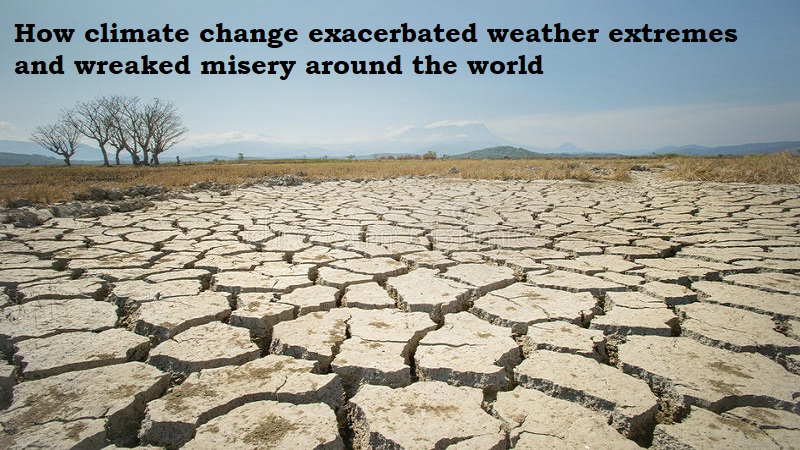
Extreme weather events are already commonplace, from wildfires in the US to intense heatwaves in Europe to flooding in some regions of China. Although the environment plays a significant role, human-induced climate change is the main cause of these catastrophes. Over 400 peer-reviewed studies were analysed to determine how things deteriorated.
71% of the 504 extreme weather occurrences were made more likely or more severe by human-caused climate change, according to an analysis of the studies by Climate Brief, a UK-based nonprofit that tracks climate science and energy policy. Meanwhile, climate warming has accelerated 93% of all high heat occurrences.
Similarly high numbers were found behind flooding and drought-related events as well where 56 per cent of 126 rainfall or flooding events became more severe due to human-related climate change, while 68 per cent of 81 drought events studied were due to these reasons.
Since the start of the new millennium in 2000, researchers have kept track of 504 extreme weather events in total. ‘Combining the data from the last 20 years, studies of excessive heat (30%), rainfall or flooding (25%), and drought (25%) predominate the literature (16 percent ). Together, these include more than two-thirds of all research that have been published (71 %),’ according to a statement from Climate Brief.
In 80% of the cases examined, researchers determined that human-caused climate change had changed the chance or intensity of an extreme weather occurrence. Prior to the upcoming climate summit in Egypt later this year, the shocking new information may push world leaders to reconsider how they will address the looming issue.
The investigation also revealed that a number of heat extremes would not have occurred in the absence of anthropogenic climate change. These include the heatwave in Siberia in 2020, the ‘heat dome’ in the Pacific Northwest in 2021, and the summer that broke all records in Europe in 2021.
The 2022 European heatwave has also highlighted the government’s incapacity and lack of readiness for a heated future.
The Climate Action Tracker also noted similar trends and cautioned that present policies are anticipated to result in around 2.7 degrees Celsius warming over pre-industrial levels. The Climate Action Tracker tracks government climate action and compares it to the globally approved Paris Agreement. The Paris Agreement’s aim of keeping global temperatures below 1.5 degrees Celsius will be violated by this.
A UN group called the Intergovernmental Panel on Climate Change (IPCC) has found that human-induced climate change is disrupting nature in a dangerous way and has a significant impact on the lives of billions of people worldwide. In its most recent report, the panel stated that severe weather occurrences, particularly in Africa, Asia, Central and South America, on Small Islands, and in the Arctic, had exposed millions of people to acute food and water shortages.

Post Your Comments